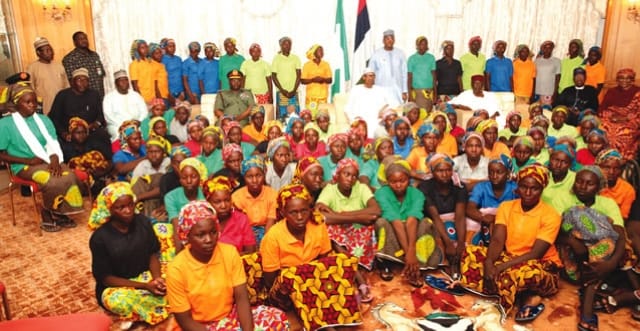Nigeria
Report confirms the return of 21 Chibok girls, who are now accompanied by 34 children

A recent report released by the Murtala Muhammed Foundation (MMF) has shed light on the distressing aftermath of the abduction of 276 girls from Chibok Girls Secondary School in Borno, Nigeria, ten years ago.
The report reveals that out of the 21 girls who were eventually released, they returned with 34 children, serving as a heartbreaking confirmation of the sexual violence and forced marriages they endured during their captivity.
Tragically, the report also highlights that 48 parents of the abducted victims have passed away since the kidnapping, leaving behind a legacy of psychological trauma for the survivors and their families.
Read Also: Our dedication is to save the remaining Chibok girls who were abducted- Borno govt
This trauma has resulted in various health issues and has created significant barriers to work and education.
In response to these findings, the CEO of MMF, Dr. Aisha Muhammad-Oyebode, presented ten key recommendations aimed at urging the Nigerian government and the international community to collaborate on addressing the pressing issues faced by these girls and their communities.
These recommendations include enhanced security measures, community empowerment programs, psychological support services, education initiatives, legal reforms, transparent communication, humanitarian aid and development assistance, women’s empowerment programs, and early warning systems for security threats.
It is evident that despite the global outrage sparked by the Chibok kidnapping, little progress has been made in Nigeria, where kidnapping remains a prevalent issue.
As the country’s kidnapping epidemic continues to escalate, it is crucial for the Nigerian authorities and the international community to take concrete steps in addressing the root causes of conflict, extremism, and violence against women and girls.
These underlying drivers include widespread poverty, instability, and a lack of economic opportunities.
The report also reveals that 91 out of the 276 schoolgirls still remain unaccounted for, emphasizing the urgent need for action and justice.
